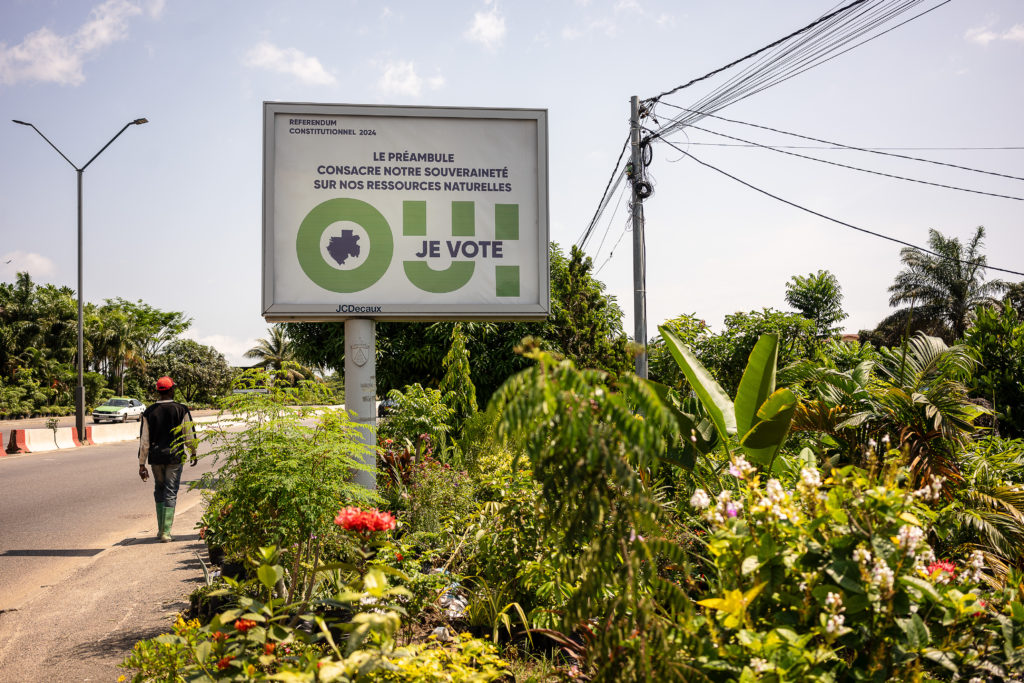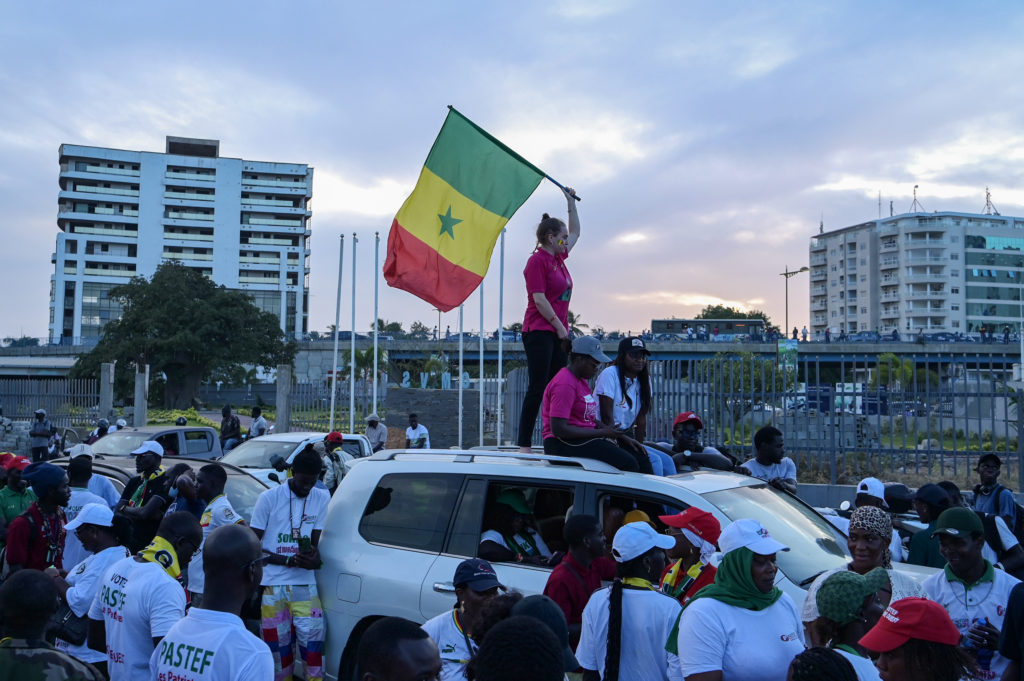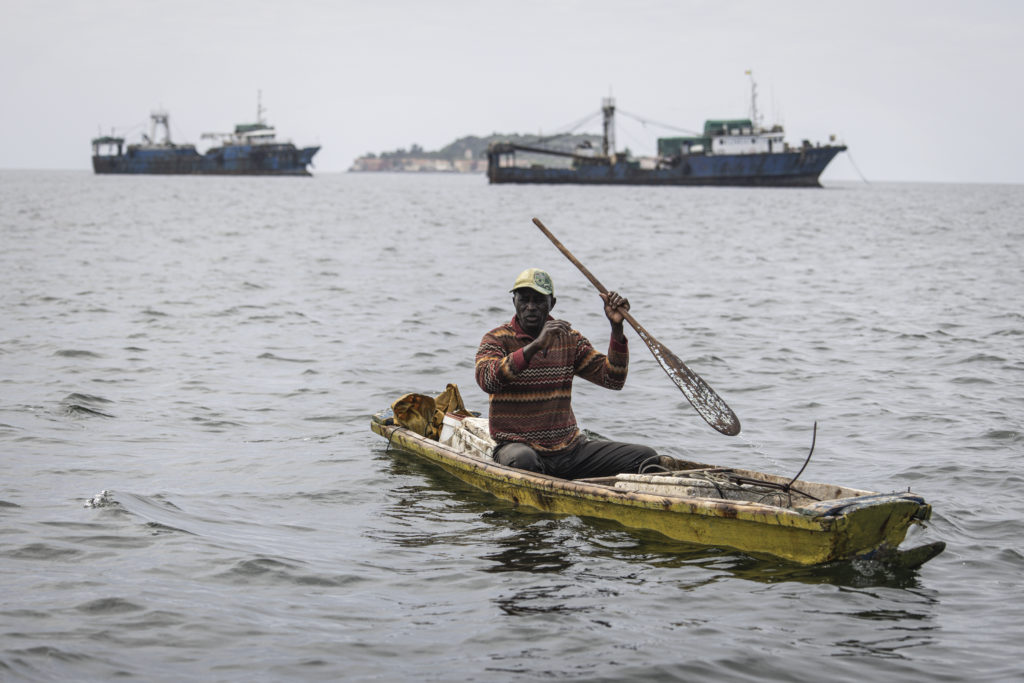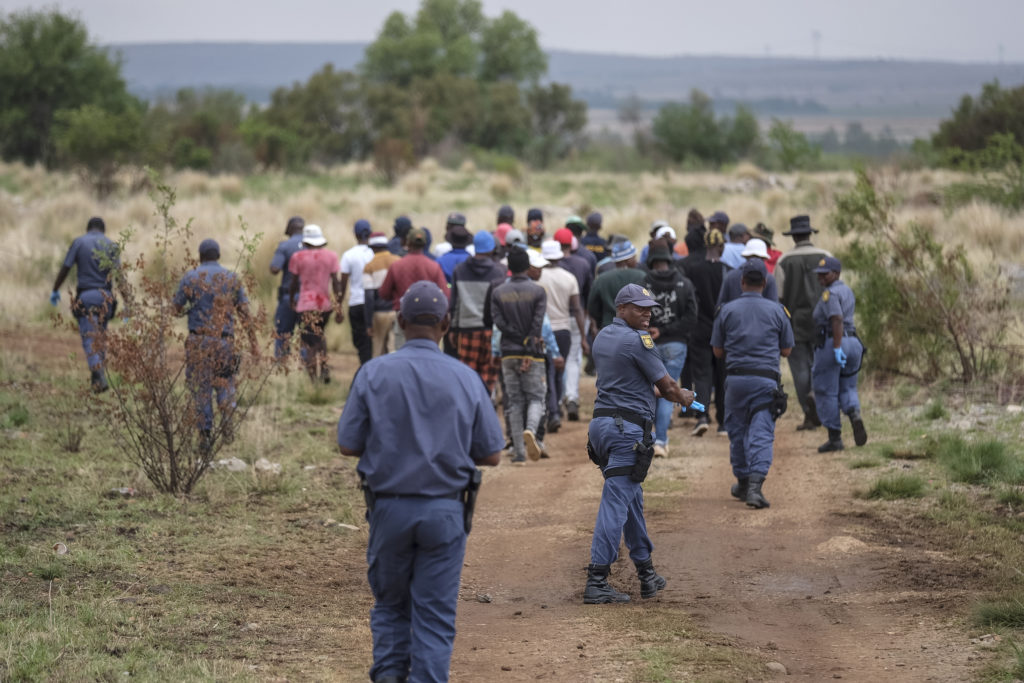Two days ahead of a referendum on a new constitution, Gabon’s cities are adorned with signs urging citizens to vote “yes” while opponents of the junta-drafted law struggle to make themselves heard.The vote is a key step toward the return of civilian rule promised by the military after its August 2023 coup ended 55 years of rule by ousted president Ali Bongo Ondimba’s family.Strongman General Brice Oligui Nguema promised to hand the reins of the oil-rich central African country back to civilians after a two-year transition period.But he has made no secret of his desire to win the presidential election scheduled for August 2025, which under the proposed constitution would grant him power for a seven-year term.On the day after the coup’s first anniversary, billboards urging voters to approve the new basic law sprung up everywhere.And since the campaign’s official launch a few days ago, T-shirts and caps bearing the legend “vote yes for the future of Gabon” have been handed out.- ‘Why yes?’ -In the shade of a bus stop in Lambarene, a four hours’ drive from the capital Libreville, retiree Bernard Mambenda told AFP he would vote yes “because we have to move forward”.”This constitution is to give instructions to future generations so that we go forward,” he said — and the sea of handed-out “yes” garments and billboards around suggested he would be in the majority.But not everyone was convinced by the army’s proposed constitution — or its signs of widespread support.”‘Yes’ is everywhere in the city. But we would like to have more details as to why ‘yes’? Some people might want to vote ‘no’ without knowing it,” said Neil Amede Ngonga, a DJ from Lambarene.The 25-year-old said he would hesitate to vote on Saturday because of the lack of information on the proposed constitution’s 173 articles, published less than a month ago.And Ngonga worried that many Gabonese needed clearer explanations of what the referendum was and what was at stake.- Strong executive -Drafted following a national dialogue in April, the proposed constitution sets out a vision of a strong presidency over a maximum two terms, with no prime minister and no dynastic transfer of power — as happened under the Bongo family.The second article proclaims the coup’s anniversary on August 30, 2023 as a liberation holiday celebrating the end of the Bongo dynasty’s more than half-century rule.Meanwhile article 170 exempts from prosecution or conviction “the actors of the events ranging from August 29, 2023 to the inauguration of the president of the transition” on September 4 — in effect providing immunity for Oligui and his co-conspirators.Several of its provisions cannot be subject to future revisions.Those include the two-term limit, election by direct universal suffrage and the definition of marriage as a union between a man and a woman.”This is the first time our generation has seen an event like this referendum,” said Laeticia Carmella Diweckou, a “yes” cap perched on her head as she went about campaigning in Lambarene.Aged 40, the civil servant was too young to vote in the 1995 constitutional referendum — the only one in Gabon’s history since independence from France in 1960.”These articles were proposed by us, it is the first time in our constitution that we ask the Gabonese people to make the choice of what they want for their future,” she said.”I do not understand the reasons to vote ‘no’.”- International observers -In the other camp, 22-year-old biotechnology student Kevin Angoue said he would mark his cross in the “no” box.He said this was especially to prevent his children from “doing military service”, which will become mandatory if the text is adopted. In the capital Libreville, a few small posters stood as evidence of the “no” campaign driven by Alain Claude Bilie-By-Nze, ousted Ali Bongo’s last prime minister.”No to the constitutional legalisation of the coup, no to a seven-year mandate, and no to a president-king of Gabon,” the placards read.Around 860,000 voters will be invited to cast their ballots in the country’s 2,800 polling stations, while the 2024 budget sets out 27 billion Central African francs ($44 million dollars) for the referendum’s organisation.The authorities assure that they have taken all measures to “ensure the greatest transparency” during the vote, including by inviting international election observers.To encourage turnout, the government gave Gabon’s citizens two days off before the vote.With the referendum taking place during the short rainy season, authorities also allowed registered voters to switch their polling stations to avoid issues linked to transport and weather hazards.
Thu, 14 Nov 2024 06:15:45 GMT









